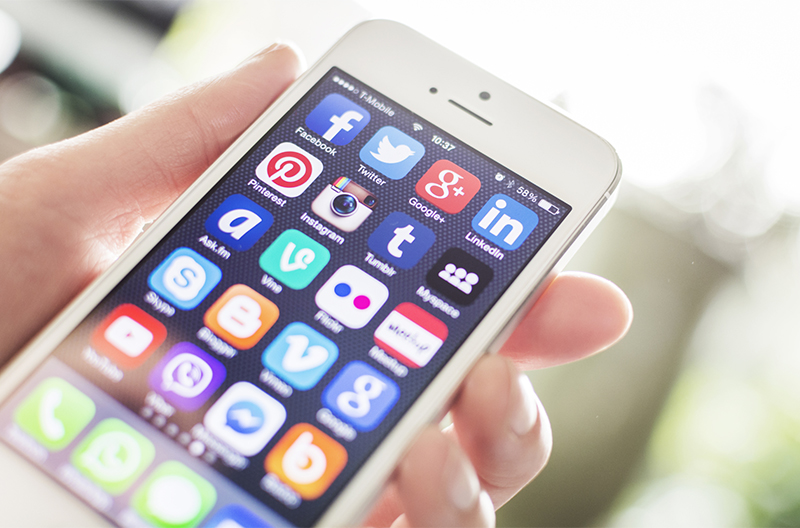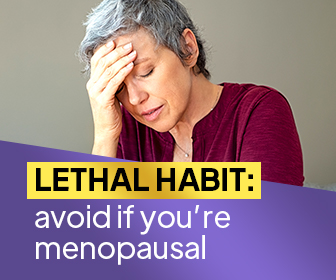Social media is a central part of the modern human experience, but could it be doing you more harm than good? While these platforms allow us to connect with one another easily, there are also negative effects of social media of which we should be aware. Within this guide, we will delve deeper into the problem and look at what you can do to help yourself.
The Pros and Cons of Social Media Usage
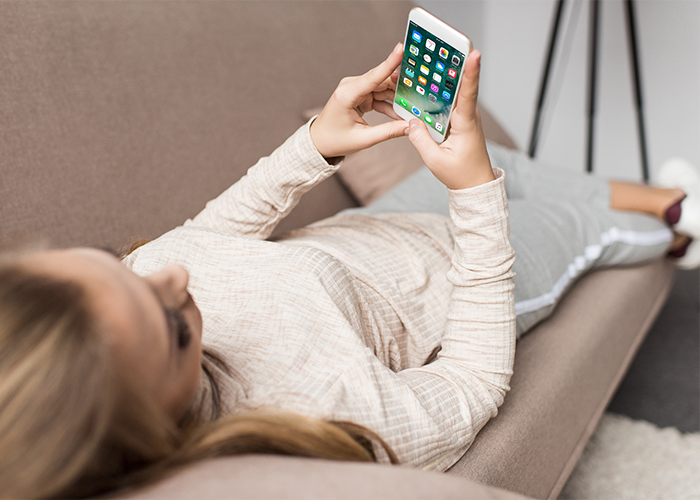
Around 69% of American adults are on at least one social media site, according to a report from Hootsuite.[1] However, as we become more reliant on these platforms, we should also consider the pros and cons of social media usage. To kick things off, let’s take a quick at the advantages and disadvantages these sites could be offering.
Social media pros
- Stay in touch with family and friends
- Organize events easily
- Document your social events
- Reach out to like-minded communities
Social media cons
- Fear of Missing Out (FOMO)
- Issues with online privacy
- Pressure to post regular updates
- Could lead to social media addiction
What is Social Media Addiction?
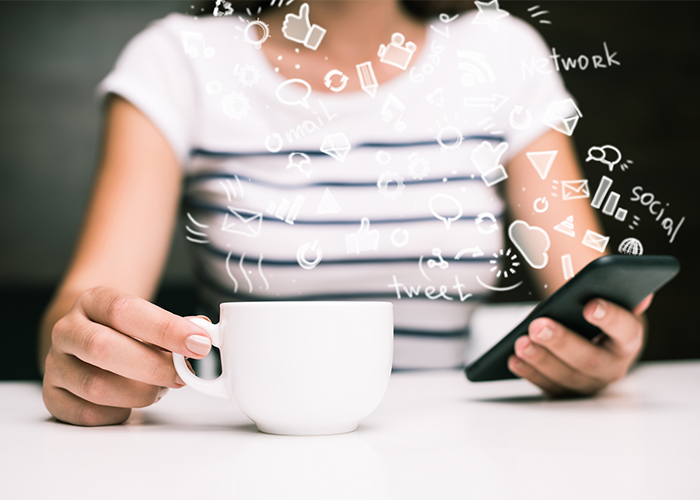
Social media addiction can be seen as a situation in which “individuals exhibit a compulsion to use social media to excess”, according to a report in the Journal of Psychological Research in Cyberspace.[2] The research explains that those experiencing social media addiction may have an uncontrollable compulsion to check social media platforms. As you will discover in this guide, symptoms of social media addiction can relate to your mood, health, and relationships.
How Many Negative Effects of Social Media Are You Feeling?
Do you believe that social media is impacting your everyday life? If you’re worried about this issue, here’s a quick test. Here are 10 of the most negative effects of social media. As you read through the list, keep a tally of how many of the following affect you.
1. Negative feelings about yourself
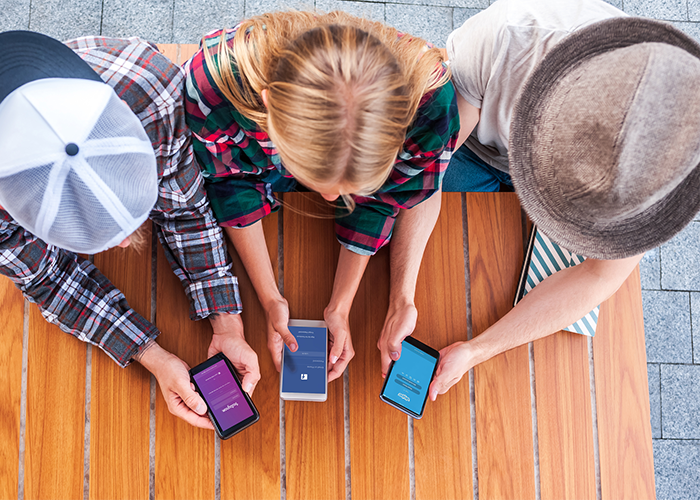
Does social media make you feel bad about yourself? Research from Indiana University found that most social media users believed themselves to be less happy and popular than their friends online.[3] If, when you log on to any given site, you find yourself comparing your life to that of your friends, that could impact your confidence levels greatly.
2. Low body confidence
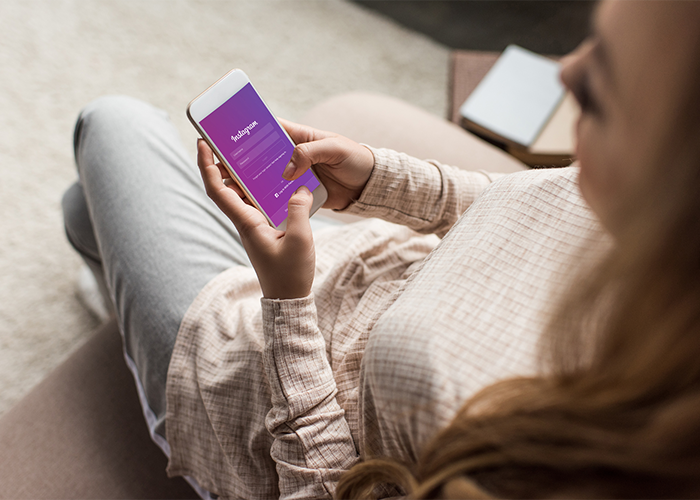
When we talk about the negative effects of social media, there’s one that we must not overlook. Constantly using social media could be linked to low levels of body confidence. Research from York University found that women who engage with social media could have a negative perception of their body.[4] Those who saw images of friends who they believed to be more attractive were more likely to have a negative image of themselves.
3. Sleep loss
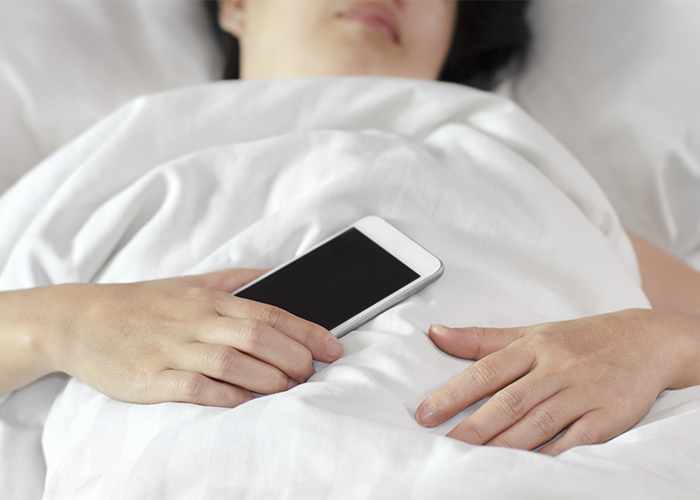
Are you losing sleep each night? One in five young people wakes up in the night to check messages or updates on social media, according to research from the Journal of Youth Studies.[5] Should you find that you’re struggling to get the rest that you need or that you have a compulsion to check social media, that is a genuine problem.
4. Depression and loneliness
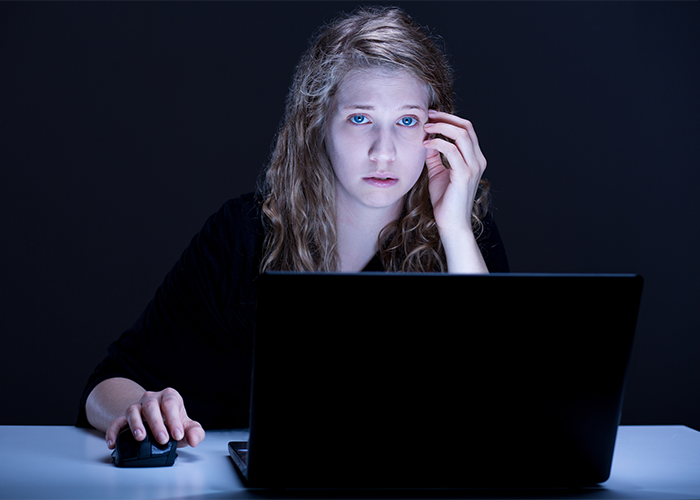
It’s no secret that social media could have an impact on your mental health. Perhaps one of the most worrying negative effects of social media is that it can cause both loneliness and depression. Research from the University of Pennsylvania suggests that there is a strong link between these mental issues and how much people use social media.[6]
5. Increased anxiety
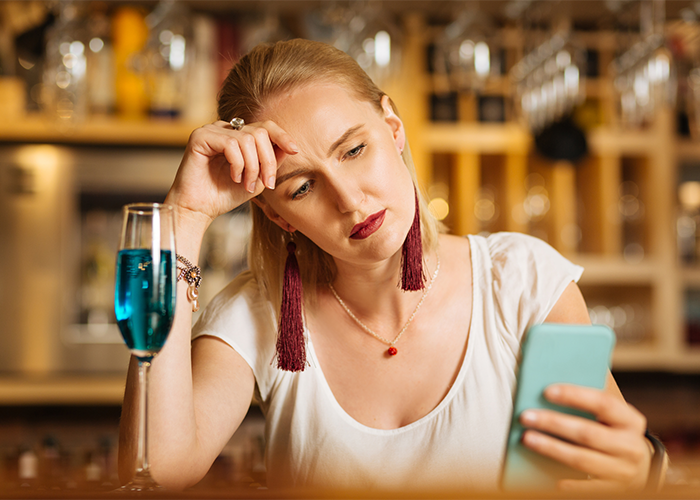
While loads of things contribute to anxiety, continually using social media may be one of the underlying issues. One study from the British Psychological Society suggests that usage is linked to a high level of anxiety in teens.[7] While the research focused solely on a younger demographic, it’s likely that the findings can relate to any age range.
6. Lack of concentration
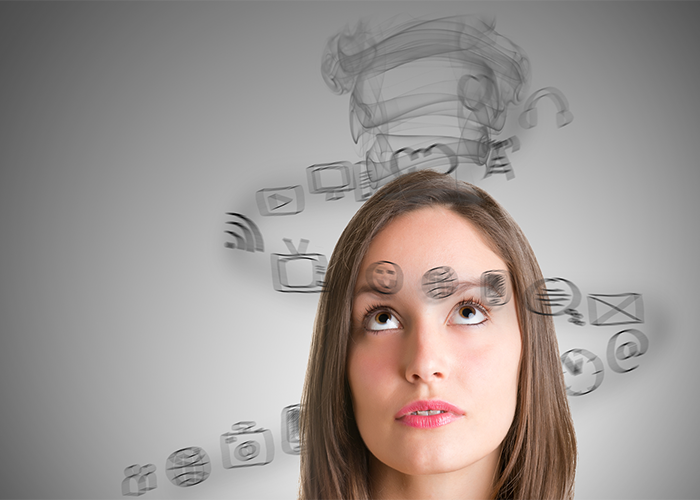
Whether you’re working on a report or trying to read an important document, the last thing you need is a distraction. One of the worst negative effects of social media could be that it stops you from concentrating. Switching from task to task could lower the amount of attention you give each chore, according to research from the University of Oregon.[8] If you’re struggling to focus your mind on your work, you may find that checking social media is the cause.
7. Fear of missing out
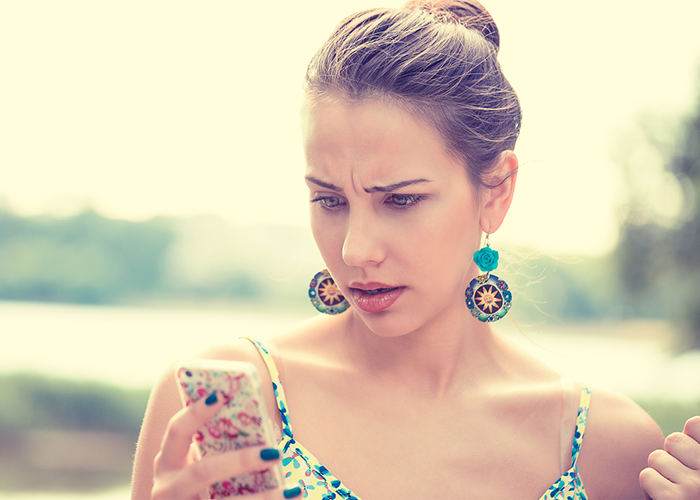
Do you worry that everyone is having fun without you? When you check the likes of Instagram, Twitter, or Facebook, do your friends’ updates make you jealous? If so, you may well be experiencing Fear of Missing Out (FOMO). Research from the University of Essex found that those experiencing this modern-day problem could also come up against a wealth of other issues.[9] The anxiety caused by feeling that you’re missing out could also encourage you to continue using social media excessively. The problem is a vicious circle.
8. Feeling unwell
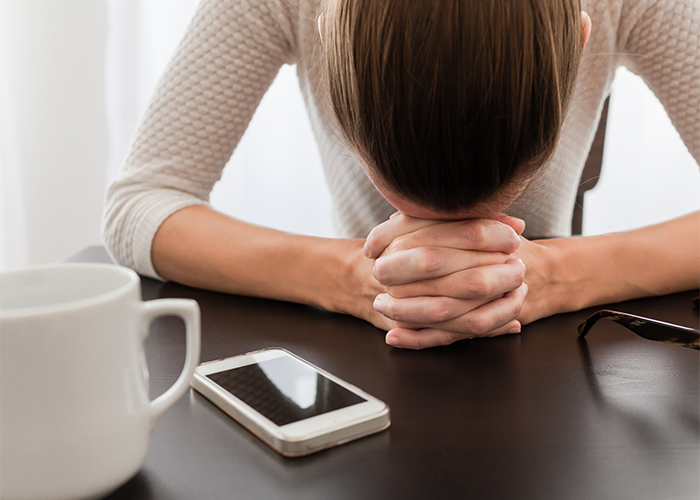
Do you feel ill when you check social media? Thanks to the comparisons we draw when using Facebook, we may become more highly aware of our own physical ailments suggests a study published in Elsevier.[10] Seeing others as “better off” than us may physically make us feel worse about our own problems. So, for example, if you have a sprained ankle, seeing someone posting about their morning run could make it hurt more.
9. Being envious
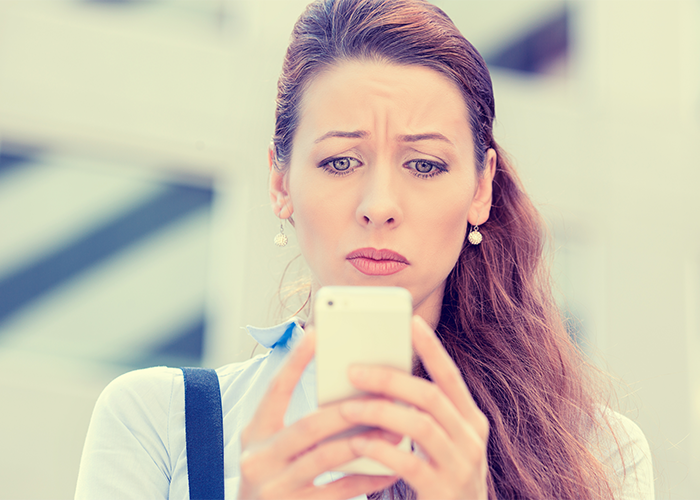
Has that green-eyed monster reared its ugly head? Envy is one of the nastiest emotions and may also be one of the negative effects of social media usage. Research from Technische Universität Darmstadt found that more than a third of Facebook users felt negative when on the platform.[11] The researchers theorized that social envy could be the cause of this problem. If you feel jealous when you’re online, that’s a real red flag.
10. Relationship problems
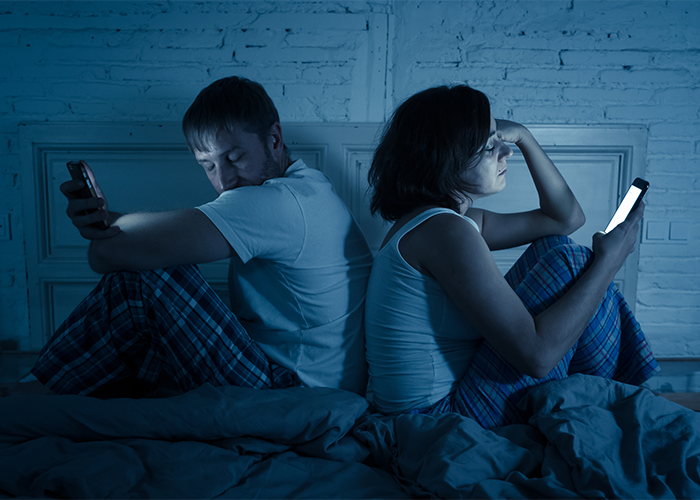
While social media is there to help us build strong connections and relationships with people, it could actually have the opposite effect. One study from the University of Missouri-Columbia found that excessive Facebook users were more likely to have problems in their romantic relationships.[12] The experts identified that more usage was linked to Facebook-related conflict between couples, which could lead to breakups.
Results: How Did You Score?
Now that you know all about the negative effects of social media, how many of them sound familiar to you? If you are currently experiencing more than a handful of the issues we’ve listed here, you may be struggling with social media addiction. Count up your score and check out what it means about your usage right here.
- 1-3 negative effects of social media – While you’re a regular social media user, the platforms are not having a highly negative impact on your life. You may have a good balance of usage, which means that you don’t need to change all that much. Should you find that social media begins to impact you in a negative way, consider ways in which you can use it less.
- 4-6 negative effects of social media – Right now, you may feel that your online usage is no big deal. Despite this fact, you are beginning to battle some of the negative effects of social media on a regular basis. That could fast lead to social media addiction. Try being more mindful about the time you spend looking at the platforms and how often you engage with them.
- 7-10 negative effects of social media – Social media could be having a strikingly negative effect on your personal life and health. With that in mind, you could be struggling with social media addiction. It is worth assessing how much time you spend on these platforms and taking actionable steps to decrease your usage. While it may be hard to curb the habit, it’s worth it in the long run.
Expert Tips on How to Minimize the Effects of Social Media
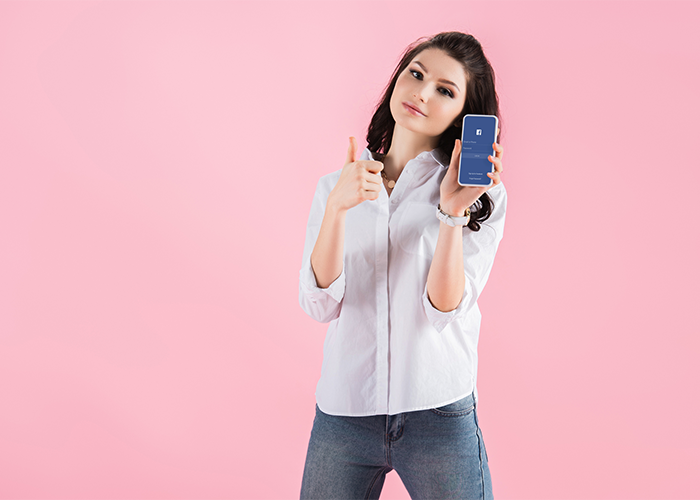
If you scored highly on the social media addiction test here, it might be time to take action and work toward curbing your usage. To get you started, let’s take a look at some of the simple ways you can minimize the effects of social media. Here’s what you should know.
- Use helpful apps. Of course, the most obvious way to minimize the effects of social media is to spend less time on it. Luckily, there are apps to help you do just that. If you have an iPhone, you can use the new Screen Time app to set timers for each of your social media platforms. Android phone users can utilize the similar Digital Wellbeing app to do the same thing.
- Organize your home screen. Are your social media apps on the first page of your home screen? If they are, it could be time to get organized and change things around. Put them on another screen or in a folder. That way, they are no longer the first thing you see when you unlock your phone.
- Unfollow certain accounts. Do you always feel bad when you see a certain person on Instagram? The answer to this problem is simple: unfollow them. Curbing the aspects of social media that have a negative impact on your life is a smart move. Both Instagram and Facebook allow you to unfollow someone’s posts without unfriending or unfollowing them completely.
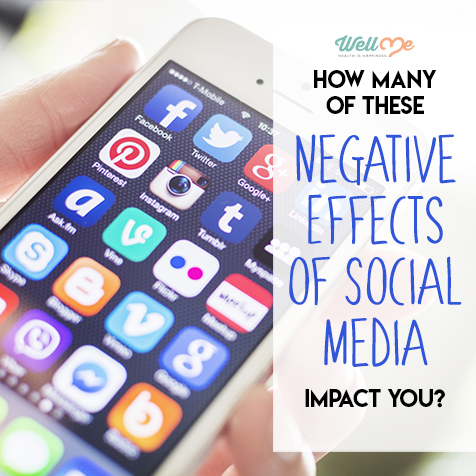
Conclusion
If you are affected by social media addiction, the best thing you can do is start taking steps sooner rather than later. Small habitual changes could make a massive difference to how these sites impact your life. Of course, if you are seriously concerned about the negative effects of social media, it may be worth contacting a medical or psychological professional.

Share this Image On Your Site
References
- [1] https://blog.hootsuite.com/social-media-statistics-for-social-media-managers
- [2] https://cyberpsychology.eu/article/view/11562/10373
- [3] http://dx.doi.org/10.1140/epjds/s13688-017-0100-1
- [4] https://www.sciencedirect.com/science/article/pii/S174014451730517X?via%3Dihub
- [5] https://www.tandfonline.com/doi/full/10.1080/13676261.2016.1273522
- [6] http://dx.doi.org/10.1521/jscp.2018.37.10.751
- [7] https://www.gla.ac.uk/news/archiveofnews/2015/september/headline_419871_en.html
- [8] https://www.pnas.org/content/106/37/15583.abstract
- [9] https://www.sciencedirect.com/science/article/pii/S0747563213000800?via%3Dihub
- [10] https://www.heliyon.com/article/e00989
- [11] https://www.sciencedaily.com/releases/2013/01/130121083028.htm
- [12] http://dx.doi.org/10.1089/cyber.2012.0424

